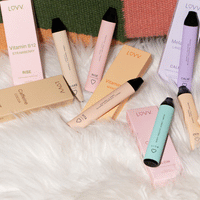
Are Essential Oils Worth the Hype?
Plant-based oils or essential oils are believed to help with a variety of health problems (insomnia, migraine, anxiety, and troublesome acne to name a few). Yet, are they worth the buzz? Is the reason for the growing popularity or essential oils pure marketing or their proven efficiency?
Essential oils may help treat certain conditions. Although it is highly unlikely to expect aromatherapy oils to cure cancer, there’s no harm in using these aromatic compounds to make a positive impact on one’s well-being. Here’s what you should know about the conditions essential oils may help with and how to find quality ones.
Are Essential Oils Medically Proven?
The effectiveness of essential oils in human health is still not medically proven. Yet, one of the studies at Johns Hopkins University proved the effectiveness of essential oils (myrrh, garlic, and other herbs) with eliminating Lyme bacteria.
The signs are mixed here. Is it possible essential oils can have life-altering properties? Not really. Some clinical trials claim essential oils can’t while others claim they can alleviate conditions such as:
- Low/increased appetite,
- Nausea,
- Anxiety,
- Insomnia,
- Depression,
- Dry mouth.
Yet, we just have to mention essential oils may provide additional benefits when used safely. You shouldn’t write them off just because there is very little research about this topic. Instead, give different essential oils a chance. We already spoke about the benefits of Roman chamomile, grapefruit, and cedar essential oils.
What Are the Possible Side Effects of Essential Oils?
The main side effects of essential oils include irritations and allergic reactions. Essential oils that seem to trigger allergic reactions include:
- Lemongrass oil,
- Oregano oil,
- Peppermint oil
- Jasmine oil,
- Bergamot oil,
- Cinnamon oil,
- Ylang-ylang oil.
However, note that only a small percentage of people experiences any side effects at all. People who have a history of allergic relations to topical products or those with atopic dermatitis are likely to experience sensations on the skin.
If you are not quite sure whether you should apply essential oils topically, try diluting rosemary or lavender oil with a carrier oil before applying it to the skin. This will help you prevent irritations and hives.
How to Find High-Quality Essential Oils
One of the main factors that create confusion about the positive effects of using essential oils is – marketing. Never take a claim essential oils can cure anything as a fact. Obviously, these oils are not magic potions. Yet, you can definitely experience an improvement in your well-being after some time of use but only if you manage to find high-quality, pure essential oils. Here’s the list of the factors to consider:
- Label
Look for the country where the plant was grown, the plant’s name in Latin, other ingredients, and purity of the oil.
- Container color
Pure essential oils come in glass, dark-colored (blue or brown) containers. Be careful with plastic bottles as some manufacturers paint the bottles. The color of the bottle can taint the oil and spoil its quality.
- Avoid fragrance oils
Pure essential oils come with no fillers. Avoid bottles that contain any other ingredients and chemicals. Nothing but a single-ingredient essential oil is suitable for aromatherapy.
Summary
Nothing can make you feel good and at peace they way the fragrance of essential oils can. Today, we wanted to shed some light on claims about the effectiveness of essential oils. For some people, they alleviates certain symptoms despite the lack of medical evidence. From their perspective, essential oils are definitely worth the hype.














